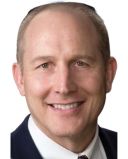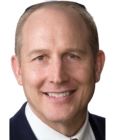Relationships
Prioritize Play and Love Labor
Is modernity killing us? Our relationships with play and labor offer clues.
Updated June 20, 2023 Reviewed by Hara Estroff Marano
Key points
- Modernity carries some toxicity with it.
- Look to our ancient evolutionary roots for antidotes to this toxicity.
- Play and labor are both natural and healthy for humans.
In the last several years Lifestyle Medicine has become a big thing. Lifestyle Medicine is not one of the 24 medical specialties officially recognized by the American Board of Medical Specialties but more of a concept to be practiced by all. Lifestyle Medicine uses evidence-based science to counsel people to adopt and sustain healthy behaviors such as improving diet, increasing activity, optimizing exercise, sleeping well, managing stress, and avoiding high-risk behaviors including tobacco use and alcohol consumption.
With regards to diet we are inundated with opinion, options, and advertising that make nutrition seem highly complicated. The reality around a proper diet is found within the diet available as human’s evolved. It is relatively simple. Eat seasonal, organic, whole, unprocessed food of much variety in color, protein, fat, and carbohydrate. Fruits, vegetables, fungi, meat, poultry, fish, eggs, dairy, nuts, oils, and spices that fit into the above criteria are part of an acceptable and healthy diet. Eat these foods between sun up and sun down allowing for a sustained overnight fast, as our ancient ancestors allowed, and forget all the other noise.
Can we stop thinking, talking, and obsessing about weight, diet and counting calories?
Eat and enjoy—it’s good for you.
Could we use a similar evolutionary model when looking at activity and exercise? As a population, we are relatively sedentary compared to our distant ancestors. Some of us do exercise on a regular basis. There is a whole industry around conscientious exercisers, offering plenty of opinions, options, advertisements, and products that make exercise seem very complicated as well.
Our most distant ancestors lived in small nomadic bands that sustained themselves by foraging, gathering, and hunting. They were on the move most of the day. When safe and fed, play, celebration, and ceremony, including dance, drums, chants, and song were all part of primitive cultures.
No one needed to take an hour out of their day to go exercise. That concept would have not only been foreign but absurd. Labor and play were simply what people did.
Our modern culture has maligned play and robbed not only our children but our adults, too, of this creative and restorative time. We have equated competition and sports with play; it is not.
Play lacks structure, goals, and winners and losers. Play looks meaningless and purposeless. Within our modern culture stoked by competition, meaning, purpose, aspirations, goals and achievement, we have discounted play and see those who play as being without drive, ambition, or motivation to achieve.
But play is meaningful and purposeful. Play is not only a time of restoration and creativity, it is also a time for socialization, collaboration, and cooperation. Play is not only joyful and fun but foundational to a healthy population, society, and culture. Play is biologically more important than accomplishment, wealth, or status, yet arguably play as it is reflected in health and happiness is facilitatory to such ends.
Rx: Play—5x/week. Play and enjoy—it’s good for you.
Our culture has also maligned labor. Labor is something we try to avoid and assign to the “lower class”. We ship our labor needs overseas or bring in migrants to fulfill our local labor needs. We tend to elevate the value of a college education and a white collar job while devaluing training in a trade and a blue-collar job.
Human evolution dates back 4.2 billion years, starting with the first simple cellular life on earth. Our species is only approximately 250,000 years old and, except, perhaps, for tribal medicine men, white-collar work is no more than 5,000 years old. One can see that labor well preceded capital, accumulation. and concepts of finance. Arguably, for the health of society, labor should be valued above capital and finance.
From an evolutionary and biologic standpoint, labor appears integral to who we are as a species. The intellectual life has been overrated when it comes to our health and happiness, in fact it is overrated when it comes to our intellect, as well. The human brain thrives with physical activity, emotional expression, social connection, and exposure to the natural world, not from intellectual grinding, nor sitting on our rears.
Are the modern concepts of academic achievement and white-collar work the equivalent of modern, highly processed foods when it comes to our health and wellness? Have we prioritized and valued the wrong things?
Teddy Roosevelt once said: “I wish to preach not the doctrine of ignoble ease but the doctrine of the strenuous life, the life of toil and effort, of labor and strife; to preach that highest form of success which comes, not to the man who desires mere easy peace, but to the man who does not shrink from danger, from hardship, or from bitter toil, and who out of these wins the splendid ultimate triumph.”
When we contemplate Lifestyle Medicine and human fitness, do we need to incorporate labor into the model? We no longer have the luxury to freely wander the Earth foraging, gathering, and hunting, but we can find ways to incorporate these activities into our lives. We can farm, garden, cook, build, paint, manufacture physical goods, and provide physical services.
In a healthy egalitarian society, the C-suite would not only value labor with proper wages but participate in labor on a regular basis—for its own welfare as well as the welfare of their company.
Rx: Labor—5x/week. Labor and enjoy not just the fruits of your labor, but the labor itself—it’s good for you.
Can we stop thinking, talking, and obsessing about work, exercise, and accomplishment and return to a lifestyle of balanced play and labor?
Stay safe and stay tuned,




